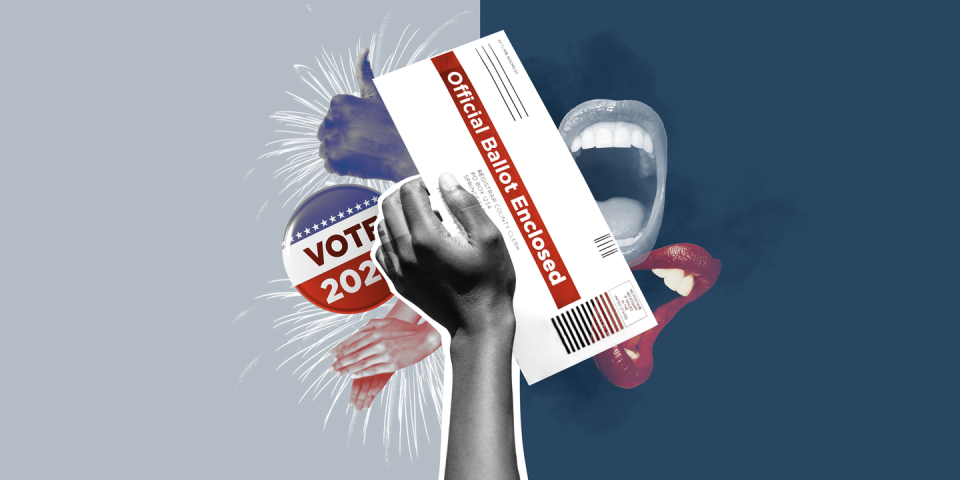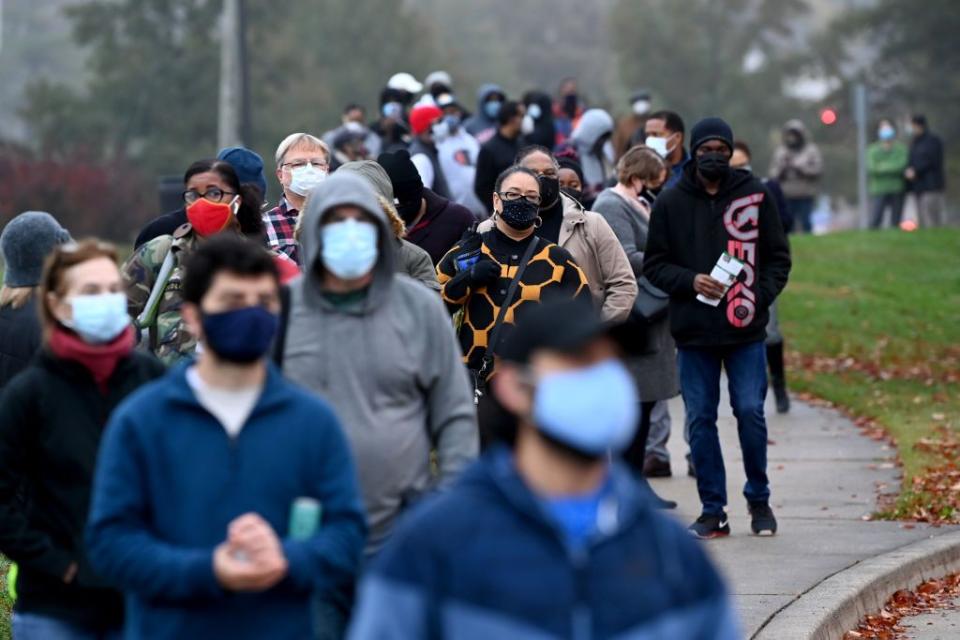Voting Should Be Fun, Not Something You Are Shamed into Doing

My first time voting was a family celebration. It was 2004, my sophomore year at Hampton University, a historically Black college in southeastern Virginia. I drove back home to Richmond, giddy, prepared to vote with the rest of my family. As the first grandchild of Black folks from Mississippi, this was a big deal. Mississippi, of course, was one of the battlegrounds for fighting for African-American suffrage in the 1950's and 60's. It's the home of voting rights activists like Fannie Lou Hamer and Medgar Evers, and the work of the Black men and women who organized across the South during the Civil Rights Movement laid the groundwork for the Voting Rights Act. Voting marked a rite of passage into adulthood and represented a poignant coda to the struggle that so many before me had fought for.
My entire family walked me to the polling site; my mother, grandparents, brother, and sister cheered me on as I cast my first ballot. It was relatively quick and easy. I remember feeling like I had done something that made my family proud.
According to Chryl Laird, the assistant professor of Government and Legal Studies at Bowdoin College, my experience is a common example of being socialized into the habit of voting. Her book, Steadfast Democrats: How Social Forces Shape Black Political Behavior, explores the multiple ways that Black people learn about and process their politics. Laird says people have key points where they learn about civics and politics, but because of the legacy of Jim Crow and living in racially segregated environments, Black people have additional layers of political education built in.
"[Y]ou are being socialized in Black church, you are being socialized amongst Black family members, amongst Black collectives, you're being socialized in Black media spaces. So there is the mainstream information that you get about politics like The New York Times and The Washington Post, but then there can be these Black sources of information, so that can be radio broadcasts like Hot 97 or The Steve Harvey Show, or television programming, or even newspapers," Laird says.
As we enter the final days of the 2020 presidential election, I've noticed a disheartening trend in my social media timelines, both from famous Black folks and people I know: admonitions for Black folks to vote that feel judgmental, mostly from middle- and upper-middle-class Black folks. This finger wagging feels nothing like the positive reinforcement I received around voting. "What Black people have done politically in their participation is extraordinary. I say that in no uncertain terms. It is extraordinary," Laird says, also suggesting that the finger waggers consider reframing their approach. Given how many roadblocks have historically and are currently being erected to make it hard for Black people to vote, we should be feted for the ways in which we still show up in the process.
Anoa Changa, a journalist and host of digital news outlet Scalawag's As The South Votes video series, expands on that sentiment. "The default should not be to shame folks around not voting but support opportunities for engagement and amplify the messaging of voting rights organizations deeply engaged in this work," Changa says. Her work with As the South Votes, which examines voter suppression in southern states, offers explainer-style videos and resources for folks who want to understand and support voting rights.
Voter suppression can take a number of forms, like voter roll purges or limiting ballot drop boxes in densely populated areas, but they all result in challenges for accessing the ballot. "Laws that appear racially neutral are disproportionately disenfranchising our communities when applied," Changa notes. In contrast to the "vote or else" approach, Prism, a BIPOC-led nonprofit news outlet, takes a neutral and service-oriented tone, like in this piece about five things you can do to keep calm about the election. Scalawag uses a similar tone in this video breaking down early and absentee voting this year.

I am reminded how much of my own voting practice is couched in class privilege and access when I speak with my friend Ashley Carter. She is a senior staff attorney at the Advancement Project, and she works with a coalition in Michigan to provide people in the criminal legal system with information about voting. "Many people who have spent time behind bars or who have a criminal record think they cannot vote, even after they have served their time," she says. "Similarly people on probation and parole, and people living in halfway and transitional houses, can vote as well in Michigan, and many people don't know this. Our goal is to dispel these popular misconceptions and get people engaged in voting ahead of the 2020 general election and beyond." Black people are disproportionately impacted by incarceration. As voting rights restoration becomes a reality in more states, it is critical that we engage with reentering citizens in a way that affirms them and provides them with the information they need to make their voices heard.
My voting pattern exists only because my family framed it as something fun and important that I should participate in. That isn't everyone's experience. If there is one thing that I've learned this election year, it is that voting, while important, is only one tool in the toolbox. We should be as expansive as possible when encouraging Black people to cast their ballots. Lecturing doesn't work; what does is making it plain how voting can translate into real, meaningful change in people's daily lives and expanding access to the ballot. Ask people to vote and share resources to get them registered. Ask people to vote and organize around local issues that directly affect your collective community. Ask people to vote and don't condescend. It'll be much easier to make it a habit that way.
You Might Also Like

 Yahoo News
Yahoo News 